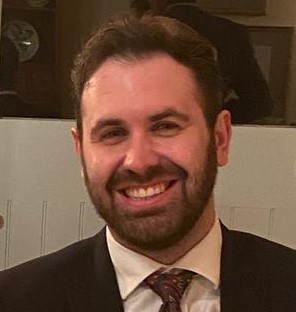In the wake of a tragedy partially attributed to eConsults, this week’s myHSN blog focuses on their safety and efficacy.
What?
During the pandemic an increased number of GP practices began to adopt online consultations to see patients, as a result of social distancing and isolation. Now, two years on from the beginning of the pandemic, e-consultations remain popular and are still being used where appropriate. So what is an eConsult, and how is it different from telemedicine? And what is telemedicine?!
Telemedicine is an all-encompassing term that describes healthcare at a distance. This includes telephone calls and eConsults.
eConsults are online consultations where patients are able to speak to their healthcare provider via a secure platform. Typically this is by filling out an online form. Information and data relevant to your concern may be sent prior to the consultation, including images of affected areas, videos, symptom diaries etc.
Other forms of eConsults allow patients to submit a form describing their ailment to the GP, if the problem is non-urgent. Response times vary, but usually a GP at the practice will send a written response via email within 24-96 hours. If necessary, the GP will book a follow-up telephone, video, or face-to-face appointment with you.
Why?
GP access has been a problem for many years, with the pandemic shining a light on a pre-existing issue.
Increased numbers of patients are seeking medical attention after avoiding seeking help during the pandemic. This, combined with a lack of GPs, had created a perfect storm. As demand for GP appointments increases and the number of GPs continues to decrease, practices are struggling to keep up with demand.
eConsults are a perceived solution to this issue, and may be a way for doctors and nurses to reduce waiting times for patients in need of an appointment or medical advice. Booking an appointment is not an easy task, with long telephone queues before you can speak to a receptionist being the norm.
A transition to online forms and replies from doctors may help to cut down waiting times. GPs have been found able to read and action around 2-3 online consultations in the time it would take for a standard face-to-face consultation of approximately 10 minutes.
eConsults are useful as they allow busy patients to engage with their health without modifying their daily schedules. This means they are particularly well-suited to young professionals and those who are used to using mobile phones and computers in their daily lives.
How (does it affect you?)
The convenience of submitting the online form and receiving an answer or speaking to the doctor from the comfort of your own home is a beneficial aspect of eConsults.
A study comparing face-to-face (F2F) consultations and eConsults demonstrated an overall satisfaction percentage 10% in favour of F2F appointments. Interestingly however, 55% of people felt that their problem had been completely resolved after an e-consultation, whilst only 33% felt that way following a face-to-face appointment.
eConsults therefore seem to be both effective and popular, and ineffective and unpopular at the same time.
For example, at the Peterhead Health Centre practice bosses have been forced to stop the use of their eConsult service due to the large number of referrals received, creating an unsafe backlog. Patients being unable to book appointments over the phone may mean that many people will go to hospital instead, causing high numbers in A&E for issues that aren’t urgent. This issue may only be resolved by having higher numbers of staff available to read and action eConsults.
Conversely, if patients aren’t getting the response they need, it can have disastrous consequences. The story of Sean Mark – a Hampshire teen who sadly took his own life after a number of eConsults without a F2F appointment led him to feel ‘fobbed off’ – exemplifies how certain patient groups may need a more tailored solution than eConsults as a default.
While eConsults have been proven safe in the main, they lack a personal touch, and those with mental health issues or a lack of tech literacy may be disadvantaged.
If you feel unsure about which appointment type to book, ring your GP and seek advice. If your symptoms get worse before you are able to see a healthcare professional, you should seek medical attention immediately and call 111, or 999 in an emergency.
You can learn more about eConsults here.
As always, best wishes from myHSN!
References:
https://www.ncbi.nlm.nih.gov/pmc/articles/PMC5829586/


